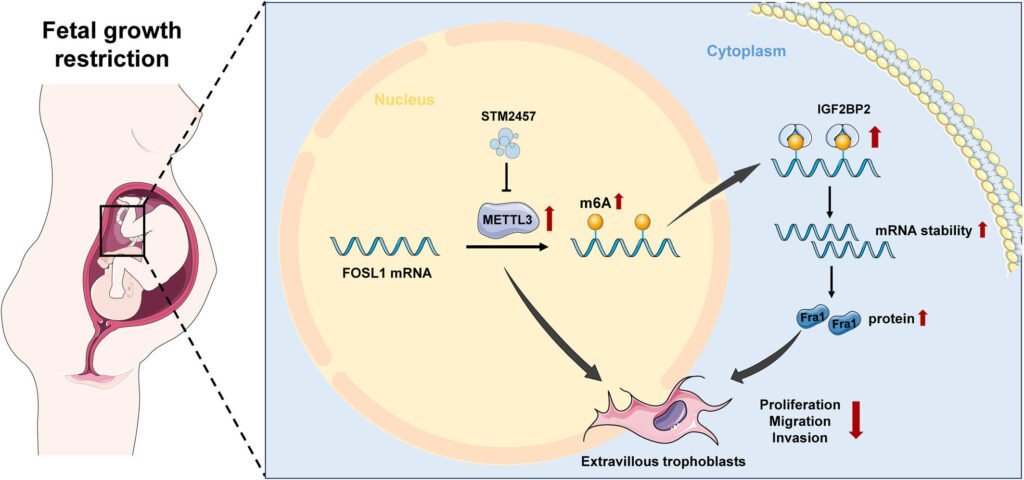Placental development plays a crucial role in fetal growth during pregnancy. However, disruptions in this process can lead to fetal growth restriction (FGR), a condition where the fetus is smaller than expected for its gestational age. In a recent study published in The FASEB Journal, researchers have identified a potential therapy that could reverse placental development issues in mice and potentially offer hope for treating FGR in humans.
FGR affects approximately 10% of pregnancies and can have serious consequences for both the mother and the baby. Complications of FGR include feeding difficulties, jaundice, and even stillbirth. Currently, there are no specific treatments available for FGR, so monitoring and early intervention are essential to manage the condition and reduce the risks associated with it.
The study focused on the role of a molecular signal called N6-methyladenosine (m6A) in mRNA, which has been linked to various female reproductive diseases and pregnancy-related conditions. Researchers found that m6A levels were elevated in placental tissues of FGR patients compared to controls, indicating a potential involvement of this modification in FGR development.
Further investigations revealed that a protein called METTL3, responsible for adding m6A to mRNAs, was overexpressed in FGR patients. In laboratory experiments using trophoblast cells, high levels of METTL3 were associated with impaired placental development processes, such as cell proliferation and migration. The researchers identified FOSL1 mRNA as a target of METTL3, with m6A modification stabilizing the mRNA and increasing its protein levels.
To test the potential therapeutic effects of targeting METTL3, the researchers used a specific inhibitor called STM2457. Treatment with STM2457 in a mouse model of FGR resulted in improved fetal weight gain, partial restoration of placental development, and reduced m6A levels. While promising, further studies are needed to validate the safety and efficacy of STM2457 as a treatment for FGR in humans.
Overall, this study provides valuable insights into the molecular mechanisms underlying FGR and offers a potential avenue for developing targeted therapies to improve outcomes for affected pregnancies. Further research in this area could lead to novel treatment strategies for FGR and other pregnancy-related complications.


